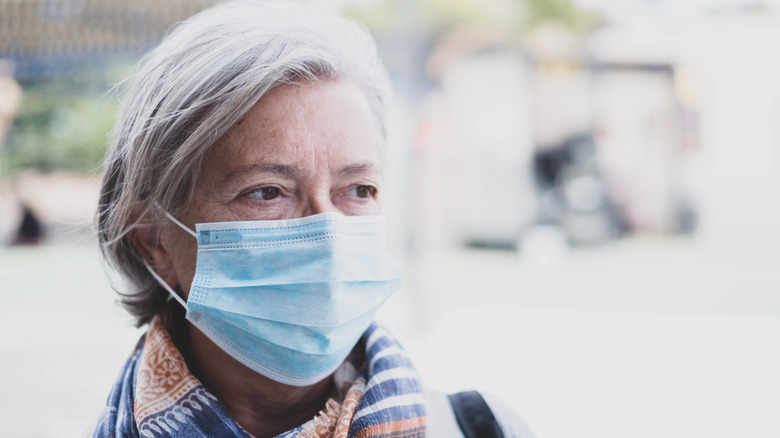Infectious Disease Expert Shares How To Make Your Own COVID-19 Risk Assessment
Although the U.S. now finds itself in the latter phases of the pandemic, those who are most vulnerable to severe cases of infection may wish to exercise continued caution when it comes to engaging in certain activities. In speaking with Vincent Hsu, M.D., an infectious disease specialist and AdventHealth's Infection Control Officer, he explained the best way individuals can craft their own evaluation to go about assessing their COVID-19 risk level. "This is an evaluation that everyone should undertake whenever there is risk of contracting COVID-19 as we go about our daily activities," Dr. Hsu stated.
He said the first factor to consider is the activity itself, such as dining out, airplane travel, attending a concert, or going over to a friend's house.
The second factor to look at, he said, is the prevalence rates of the virus in one's area. Offering sample questions to consider, Dr. Hsu stated, "Are the people you are visiting ill? How many new cases are in the community?"
The third factor to examine is one's own health status. People 65 or older, those with compromised immunity, those with recent COVID-19 infection, or individuals with certain health conditions like diabetes, are at an increased risk of severe infection, Dr. Hsu explained.
By taking all these factors into account, people can make an informed decision as to whether or not they feel safe engaging in certain activities.
What to do after determining your COVID risk
Dr. Hsu went on to tell Health Digest what steps a person might take after determining their risk level around a certain activity. "If risk is high, you might choose to wear personal protective equipment (e.g. N95 or surgical mask) to reduce that risk," he said.
"Of course, it is impossible to know numerically the exact risk for every activity," Hsu added, "but one can get an idea whether it's high, medium, or low." Offering examples, Dr. Hsu explained that, for someone with compromised immunity, going to a crowded concert would be considered more high risk than attending a small gathering with a few friends who are all healthy. "Some people may be very deliberate about doing this assessment, but there are varying degrees of how it can be conducted," Dr. Hsu explained.
Even so, he concluded the interview by explaining the importance of everyone conducting a COVID-19 risk self-assessment when deemed necessary. "We believe that doing a COVID-19 risk assessment empowers the individual to make responsible decisions regarding their own health," said Dr. Hsu. "Doing the assessment takes only a few seconds for most but can potentially save one from a potentially serious and fatal infection."


